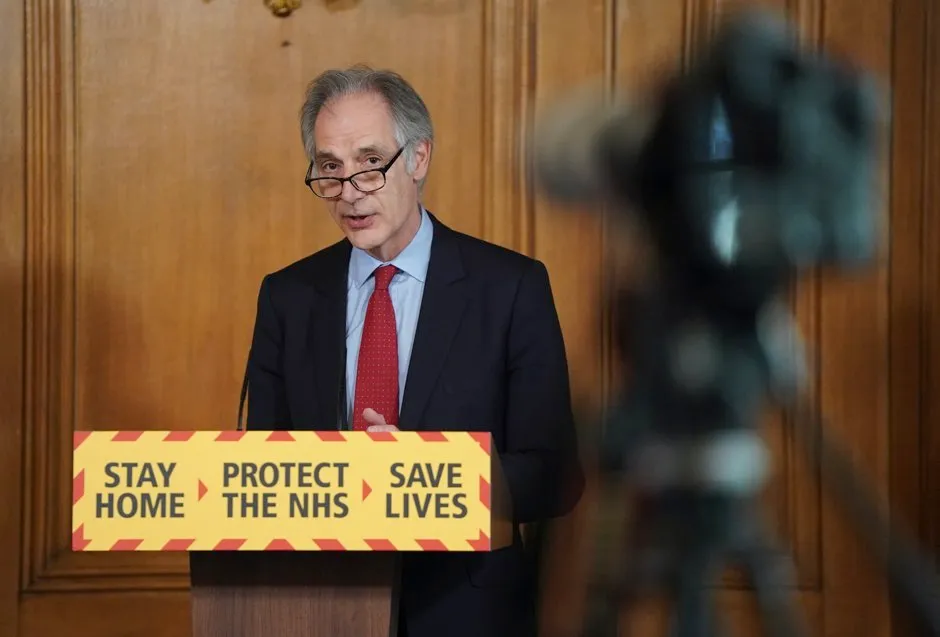The UK’s testing guru has said it is “encouraging” that new evidence emerging out of South Korea suggests those who have fought off coronavirus might develop an immunity afterwards.
Hopes of creating a natural “herd immunity” against the deadly virus might have been lost after almost 300 cases in South Korea emerged of people who had seemingly contracted COVID-19 a second time.
But the country’s Central Clinical Committee for Emerging Disease Control announced that the cases of allegedly reinfected people were due to a testing fault, and not a short-lived immunity.
Professor John Newton, the UK’s testing effort co-ordinator, said the announcement was “promising” when asked about the findings.
Read the latest coronavirus updates:
- 6,000 patients volunteer blood plasma for trial
- Coronavirus will circulate 'for many many years to come', top scientist warns
- People aged 60-69 also at high risk, experts warn
The Academy of Medical Sciences said it is thought around 80 per cent of the population would need to be immune for so-called herd immunity – where enough people have developed immunity to stop it spreading through the population – to occur.
Figures advising the government, including chief scientific adviser Sir Patrick Vallance, explained previously that the reason a lockdown in the UK was delayed until 23 March was because there had been plans to create conditions whereby herd immunity could develop.
Speaking at the Downing Street daily coronavirus briefing on Friday, Prof Newton said the science on immunity was “still emerging” but called the fresh findings from South Korea “promising”.
I think people have said before that it would be very surprising if there was no immunity after infection, but at the moment the science is still not precise.
Prof John Newton
“A general rule would be that you would never make a decision based on a single study, so we would very much want to see that result replicated in other studies before we decided that was really the case,” he said.
“It is obviously promising. I think people have said before in these briefings that it would be very surprising if there was no immunity after infection, but at the moment the science is still not precise about how much immunity you get and how long it lasts.
“But, nevertheless, results such as the one you mention are encouraging.”

It comes as scientists and academics vowed to make investigations into immunity a priority, setting the target of uncovering answers within the next 12 to 18 months.
The Academy of Medical Sciences and the British Society for Immunology, in a paper published on Friday, said key areas for study regarded establishing what, if any, protection is provided by antibodies developed by recovered patients, whether T-cells, part of the body's immune response system,are involved in generating immunity, and how antibody tests could be safely and reliably used.
The paper concluded that the answers to these questions “can help us to understand what herd immunity to this virus may currently exist, or develop within the population”.
Read more about the coronavirus:
- How are scientists developing a coronavirus vaccine?
- Is hand-washing really the best thing we can do to stop the spread of COVID-19?
- Will COVID-19 become a seasonal virus?
- Corrupted Blood: what the virus that took down World of Warcraft can tell us about coronavirus
Professor Danny Altmann, professor of immunology at Imperial College London who was on the advisory group for the research paper, said he was “hopeful” scientists would be able to come up with the answers.
The World Health Organisation has warned there is currently no evidence that people who have recovered from COVID-19 and developed antibodies are protected against reinfection.
Reality Check: Should we all wear face masks?
Currently, the World Health Organisation recommends that, outside of healthcare professionals, people shouldonly wear masks if they display symptoms of COVID-19or are taking care of someone who does.
Professor Jonathan Van-Tam, England’s Deputy Chief Medical Officer and a specialist in epidemiology and pandemic preparedness,said in the government briefing on 3 April: “…there is no evidence that general wearing of face masks by the public who are well affects the spread of the disease in our society. What matters right now, of course, is social-distancing.”
However, more and more countries recommend that people wear face masks in public places, and the WHO is reconsidering its advice based on new evidence.
